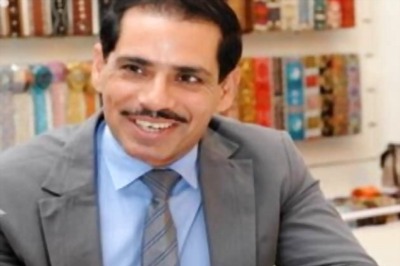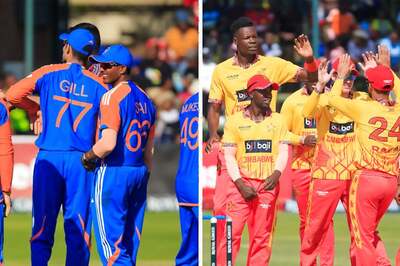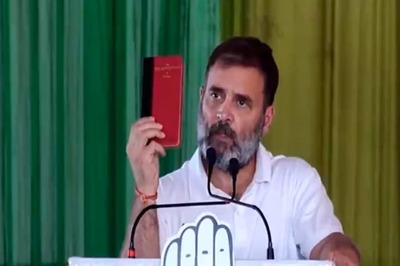
views
New Delhi: Five states go to elections in April, while the ruling Congress party is under attack for high prices and graft scandals, and the polls are seen as a mini-referendum on Prime Minister Manmohan Singh's government.
Few analysts expect any significant policy decisions on economic reforms before results are out on May 13.
Here is a summary of political risks to watch in India:
State elections
Five states go to polls beginning April 4.
Singh's Congress party hopes a good showing will ease the pressure the opposition has piled on it. Local political factors give Congress and its allies an edge, but elections are unpredictable and an upset could weaken the ruling coalition.
This means it is almost certain the government will not trim its subsidy bill by deciding to free up diesel prices, a long-promised reform. State-run oil retailers may also be persuaded not to hike petrol prices.
Analysts see Congress and its allies winning in communist-ruled West Bengal and Kerala on an anti-incumbency wave. They may also retain power in northeastern Assam due to a fractured opposition.
They have a fighting chance of retaining power in Tamil Nadu and Pondicherry, given the effectiveness of populist measures such as free television sets and cheap grains.
The five states jointly send 116 lawmakers to the 545-strong lower house of parliament and the elections, the first of several state polls over the next few years, are an early test ahead of national polls in 2014.
What to watch:
State election results.
Corruption
Singh's second term as prime minister has been deeply tarnished by a series of corruption cases, which have diverted the government's attention from policymaking.
Long-term investors have so far shrugged off the scandals as part of the risks in an emerging economy, but the worries have weighed on the Mumbai stock market which has underperformed peers.
The latest embarrassment to the government came from a WikiLeaks cable that suggested his government survived a trust vote in 2008 by bribing lawmakers to vote in his favour.
Police will on April 2 charge former telecoms minister Andimuthu Raja with taking bribes to favour two telecoms firms when mobile phone licences were issued in 2008, an episode that may have caused a loss of $39 billion to the exchequer.
What to watch:
Progress on moves to curb corruption.
Investigations into the several graft cases and questioning of officials and businessmen.
Court proceedings in the cases.
Inflation
India is still unable to get a grip on high prices despite eight rate hikes since last March. Few expect inflation to ease quickly, raising the risk of heightened public anger against the government.
Prolonged high prices will only increase the possibility the government will slip into costly populist measures and slow down on painful reforms. The Reserve Bank of India (RBI) will also stay hawkish and continue tightening monetary policy.
Wholesale price inflation , the main gauge of prices in India, unexpectedly quickened to 8.31 per cent in February. The RBI lifted its end-March inflation target by 1 percentage point to 8 per cent.
The RBI, which is comfortable with inflation around 5 per cent, has said it will do everything possible to contain inflation.
Analysts expect further rounds of rate hikes this year. The risk is that too-tight monetary policy could affect growth in Asia's third largest economy, slowing its near 9 per cent economic expansion.
What to watch:
Statements from officials, advisers and central bankers on inflation and policy responses.
Government data, including weekly food inflation, headline inflation and industrial output, which will provide a gauge of the impact of policy action.
Domestic protests over high prices.
Oil prices. Higher crude prices will mean a larger subsidy bill as well as greater inflationary pressures.
Regulatory risk
Investors are keenly watching the telecoms ministry as it considers revoking several mobile phone licences, and the decision could raise questions about the reliability of government contracts in India.
An adverse decision for firms could affect foreign investment into India, especially in the telecoms market which is the world's second-largest and fastest growing.
The ministry had asked five firms, including the Indian units of Telenor and Etisalat, to respond to the state auditor's charges they were not eligible for the licences issued in 2008. All firms have defended their licences.
The Supreme Court is also hearing a case which seeks the cancellation of these licences for similar reasons. The court has taken a tough stance on corruption in recent times.
What to watch:
Statements from the telecoms ministry.
Court proceedings on the licences case.
Diplomacy and security
India and Pakistan were upbeat after the first formal talks between officials after the 2008 Mumbai attacks, improving the chances of peace between the nuclear-armed rivals which is key to regional stability.
In a significant move, Islamabad said it would allow Indian investigators to visit Pakistan as part of their probe into the Mumbai attacks. This came a day before the prime ministers met on the sidelines of a World Cup cricket match between the two nations.
The overtures are a boost ahead of ministerial talks in July that will cover issues such as the disputed territory of Kashmir and efforts to clamp down on terrorism -- in what is known as the "composite dialogue".
Peace on Pakistan's border with India could make Islamabad more amenable to move troops to the western frontier and aid Washington's battle against Islamist groups in Afghanistan.
A truce is also key for India's efforts to calm separatist protests in the disputed Kashmir region.
India remains vulnerable to terrorist strikes like the Mumbai attacks, which New Delhi blamed on Pakistan-based actors. Similar attack could provoke a hardening of stance and would freeze dialogue.
What to watch:
Comments from policymakers and diplomats.
Security warnings of possible terrorist attacks.


















Comments
0 comment